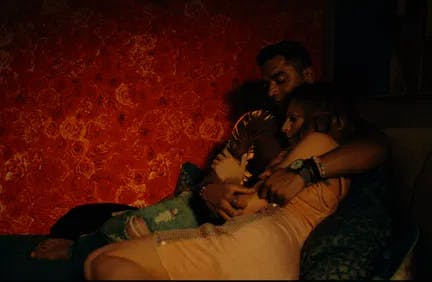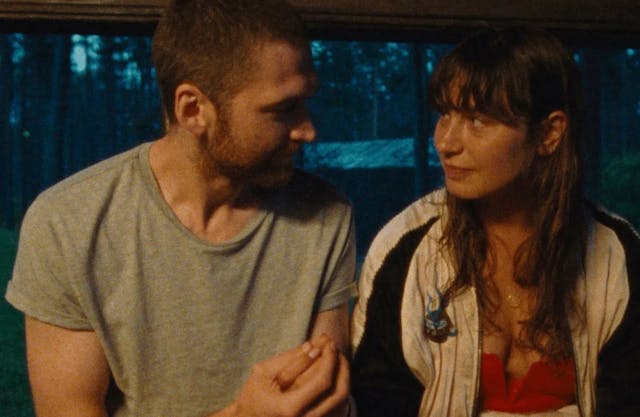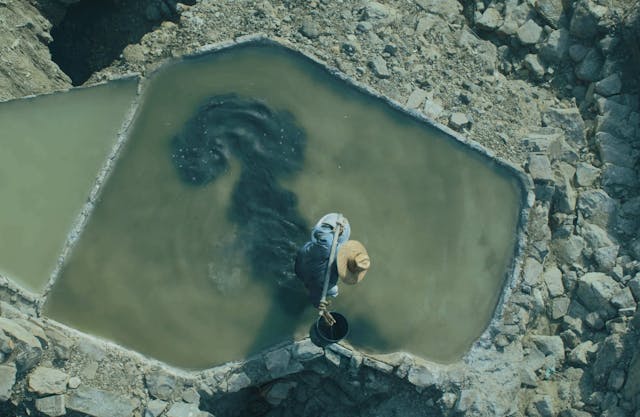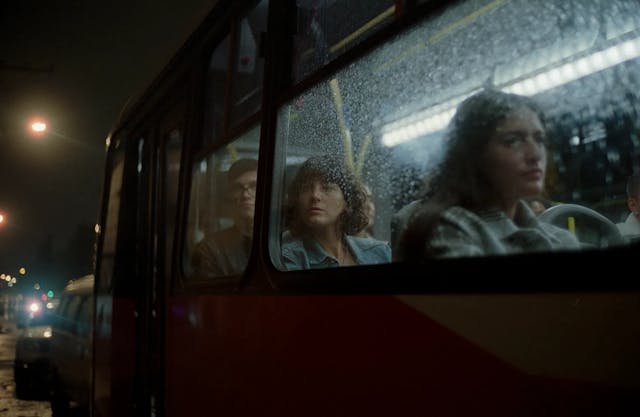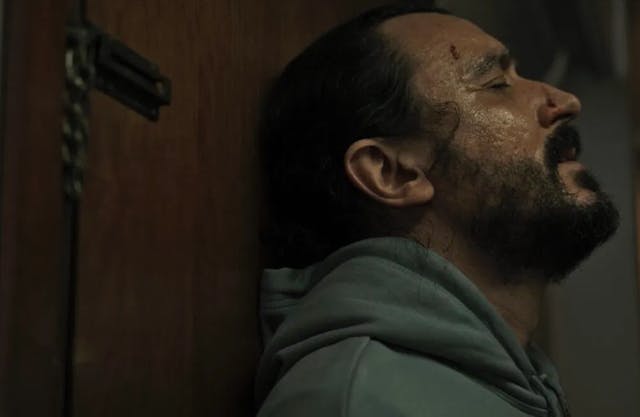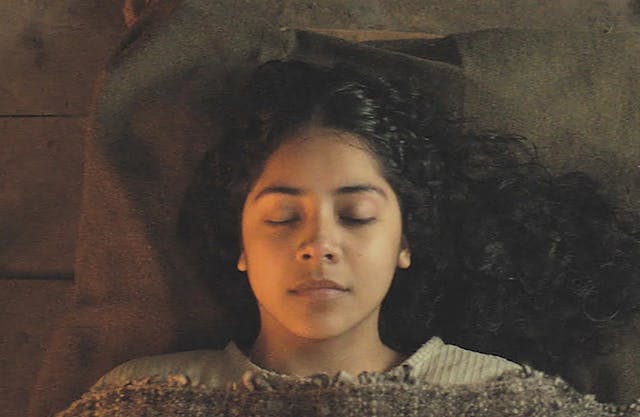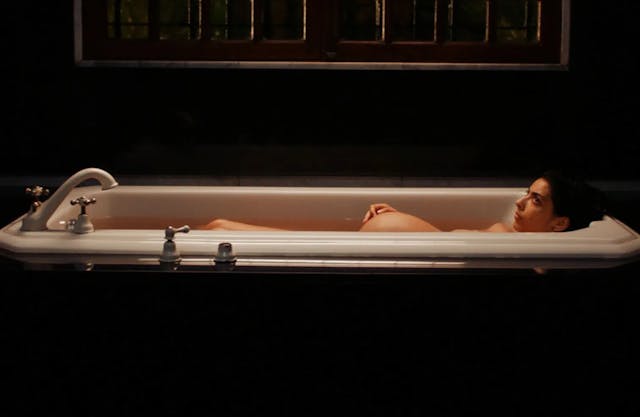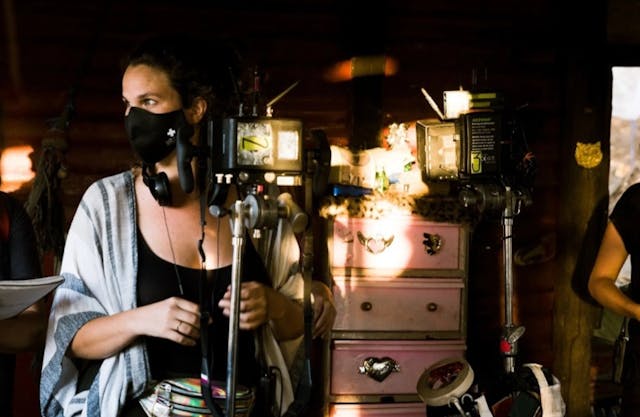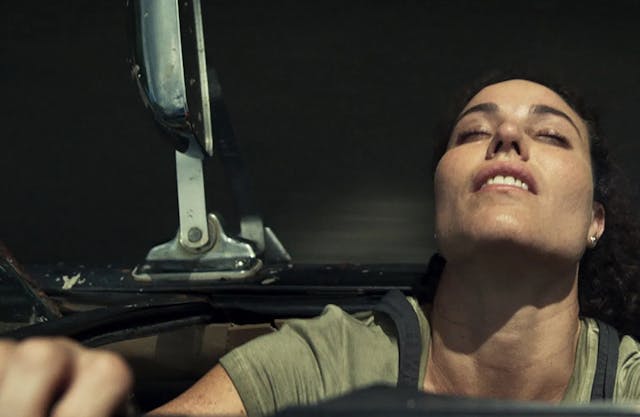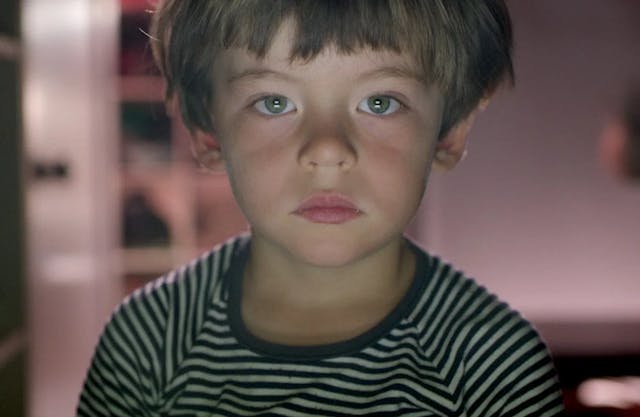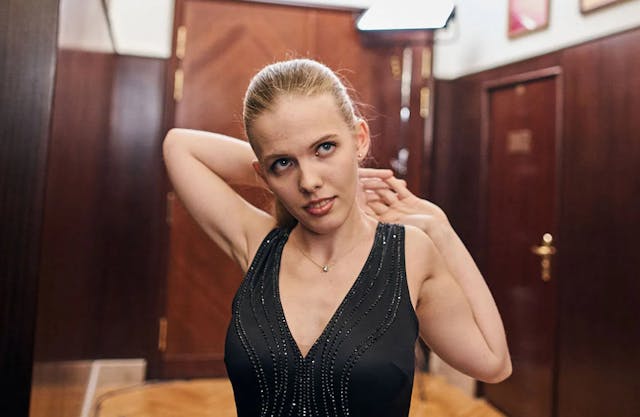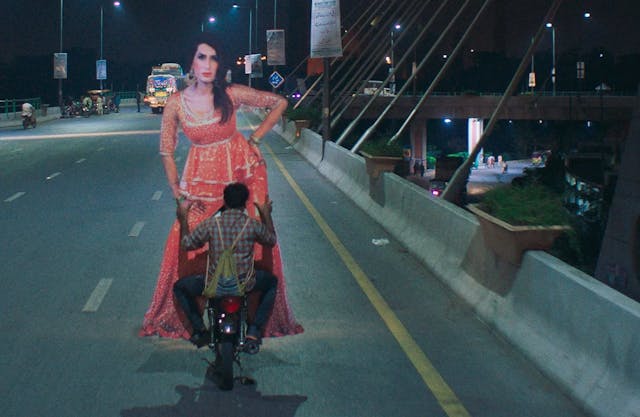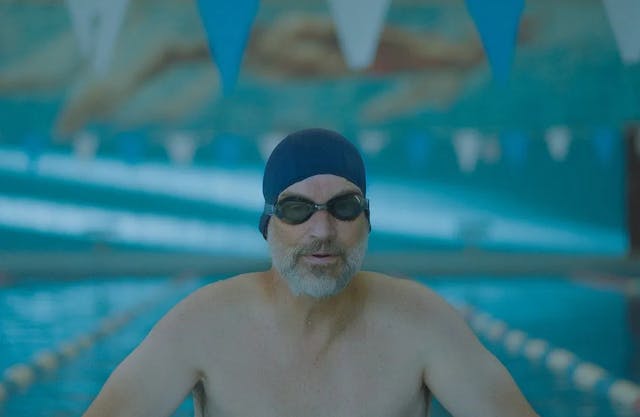"Mamacruz": Art House Provocation on Sex, Faith and Old Age

A mature woman goes through a belated sexual awakening in Mamacruz, Patria Ortega's insightful comedy about getting your groove in old age. Kiti Mánver plays the lead, a pious Seville grandmother who fills her loneliness by volunteering in her church and dressing up the saints - yes, this is a thing in catholic Hispanic countries. It is said that unmarried women are "left to dress up the saints."
Mamacruz did get married, but the relationship is stale and lacking in intimacy. Curiosity drives her to a sexual health support group, which opens the gates to a new way of life. The movie provides a juicy role to veteran actor Mánver. A foreign film movie buff may know her from many appearances in Pedro Almodovar movies - she was the shrewish feminist lawyer in Women on the Verge of a Nervous Breakdown (1987) - or Netflix’s hit series Money Heist (2017-2020). Still, you have never seen her like this.
You can thank director Patricia Ortega, who embarked on a years-long odyssey to bring Mamacruz to life. We spoke to her before the movie’s premiere at the 2023 Sundance Festival, where it played in the World Dramatic Film competition.
Popflick: Patricia, you are a Venezuelan filmmaker living in Argentina and doing a film in Spain. How did that happen?
Patricia Ortega: I know, it’s wild. I started writing in Maracaibo, Venezuela, where I used to live. I wanted to do the movie in my country, but the National Center for Cinematography fell into a crisis, and I realized there would not be any funding from them. I contacted my Colombian contacts, but we could not work things out. I migrated to Argentina, but their film industry was also in crisis. So I asked myself, what if I take this to Europe? In 2019, I met producer Olmo Figueredo at the MIAMARKET in Rome and hit it off with him. I was not used to such a volatile process. The movie ended up being a migrant, like myself.
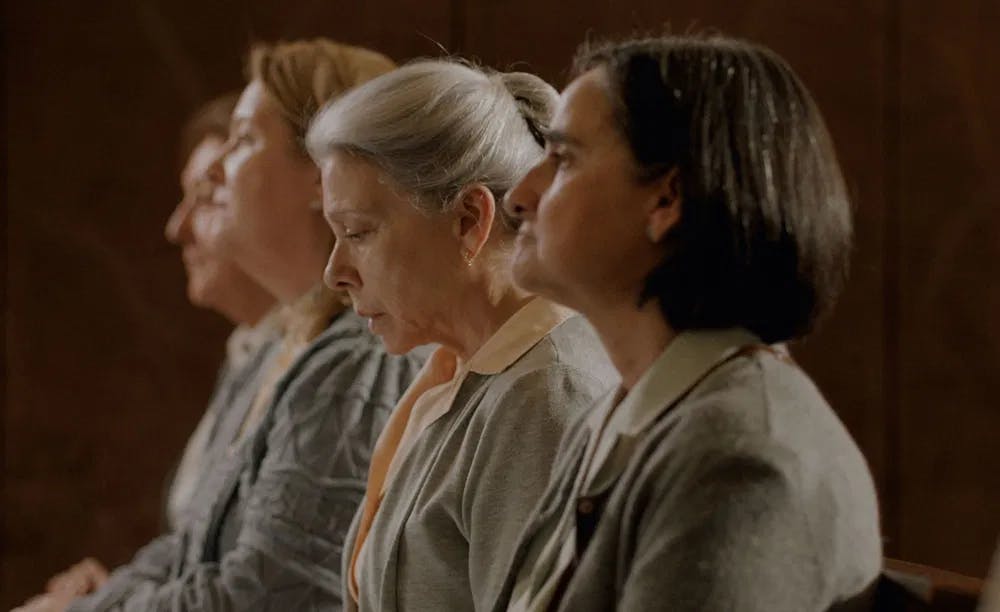
Manver can't pray away carnal desire in Mamacruz / Photo courtesy of Sundance Institute
Popflick: We think Spain is a very liberal country, thanks to Almodóvar’s films and the legend of La Movida, but that is not necessarily the case.
Patricia Ortega: We tend to think that Latin America is very backward and that Europe is always ahead of the curve, but it is not always like that. It depends on where you are, whether in a big city or a small town, and how educated you are. But I realized that in Spain, we are at the very source of many things that marked our way of life in our countries. Have you seen Easter celebrations in Seville? They have these big processions with life-sized images of saints, people scream at them, everywhere you go, there are portraits of the virgin, and you already see ads counting down the days to Easter! It’s incredible.
I'm an atheist, even though I attended a nuns' school. I learned to pray the rosary and all that. I live differently now, but you can still connect with that mindset. I wanted to work with erotism in religion. Have you read Saint Theresa of Avila? That woman was horny! If you search for Jesus on the internet, you will get a lot of images of muscle-bound, swarthy Christs. They are all hot! I wondered, where does that come from? I saw the Spanish documentary Dolores Guapa (Jesús Pascual, 2021), which shows LGBTI people who are also believers. Some sculptors make their images of Christ emulating a boyfriend or a former lover. It was funny to think there are a lot of Christs out there who look like somebody's lover, and not necessarily Christ himself! I wanted to play with those ideas.
Popflick: The inspiration for Mamacruz came from a sexy picture of your mother that you found by accident. Did you ever talk with her about it?
Patricia Ortega: Oh, yes! She keeps telling me, “Are you showing everybody my nude?” Well, Mom, what else can I do? I answer. “At least I was still young!” she says. My mom got cancer. She survived and changed a lot. I think being close to death made her want to deconstruct herself. She stopped being so conventional and rigid. Now she has a boyfriend and is a very different person.
Popflick: The reigning concept of maternity seems to erase women’s sexuality. How to overcome this?
Patricia Ortega: When you become a mother, do you stop having a vagina or feeling sexual impulses? Conventional, patriarchal, and binary roles erase the desires and needs of women. There is not one way to be a mother or a grandmother. I believe we can reveal all the alternative ways of being by telling our stories. We will normalize how there is not just one way of being. Behind every grandmother, there is a woman who can be sexual. We must debunk the myths about sensuality in the third age. Just because you are old, it does not mean you don’t want to fuck.
Popflick:“Being Impossible” is your previous film. It deals with gender identity. Why does sexuality attract you so much as a subject?
Patricia Ortega: I come from Venezuela, where we live something I like to call aesthetic fascism. They sell it as the country of beautiful women, and there is a cult of normalized beauty. I was always an outcast. That is why I’m always interested in contexts that force us to adapt our lives, bodies, and identities to one way of being. I’ve lived through it myself! I’m passionate about showing other ways to be, exist, and live and speaking of body diversity, sexual diversity, and non-binaries. There are so many stories to tell there, many characters still unseen.
Popflick: Was it hard to convince Kiti Mánver to take the role?
Patricia Ortega: I was surprised when Olmo suggested her. It is not the same to have Pedro Almodóvar, Benito Zambrano, or Isabel Coixet proposing a role like this one as an unknown Venezuelan! But Kitty was very open to it. I think she liked the story and its challenges. She asked a lot of questions. I answered as sincerely as I could. We connected through that process. It helped that we have very similar points of view on creativity. We trusted each other, and from there, everything was very fluid.
Popflick: There is a tendency in the entertainment press to say mature actresses are "brave" when they show their bodies. What do you make of it?
Patricia Ortega: When they say you are brave, they say your body should not be visible. That only a certain kind of body should be seen naked. They see the body as a product, an object, and not a subject. If actors show their naked bodies, it is because the character's life situation asks for it. Every actor is brave when they surrender body and soul to play these characters, dressed or naked.
Popflick: Mamácruz is the lead character, but you also explore the intergenerational relationship with her daughter and granddaughter. Is change possible?
Patricia Ortega: I was adamant about the granddaughter not being a conventional girl. I did not want her dressed in pink and playing with dolls. She plays soccer and is a chubby kid, just like I was. We know many girls like her, but you do not see them in the movies. I wanted to start there, deconstructing the characters we put on the screen.
Popflick: A crucial scene in the movie finds Mamacruz, let’s say, getting fresh with a statue of Jesus. Were you concerned about scandalizing and alienating audiences?
Patricia Ortega: Not really. Madonna already went there! Do you remember the Like a Prayer video clip? The saint comes to life, and they kiss and roll around on the altar. Imagine me as a catholic school girl, watching that! I loved it. So this is my tribute to her. Afterward, I understood why I liked it so much: it was polemic and fused together religious fervor and passion. When you see people singing in church, they are so passionate. I wanted to speak from a place of passion but subtly and respectfully. Not everyone will like the scene, but I believe that if you spend the whole day in a church surrounded by these images, it is impossible that it does not happen. Desire and fantasy arise from the things near you. Religion and eros are not at odds but fused together.
* After Sundance, "Mamacruz" screened at several Film Festivals: Miami, Nashville, Cleveland, and Valladolid.
Want to get an email when we publish new content?
Subscribe today